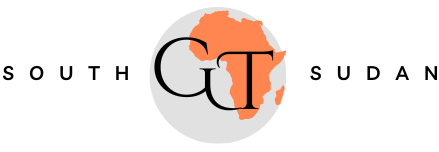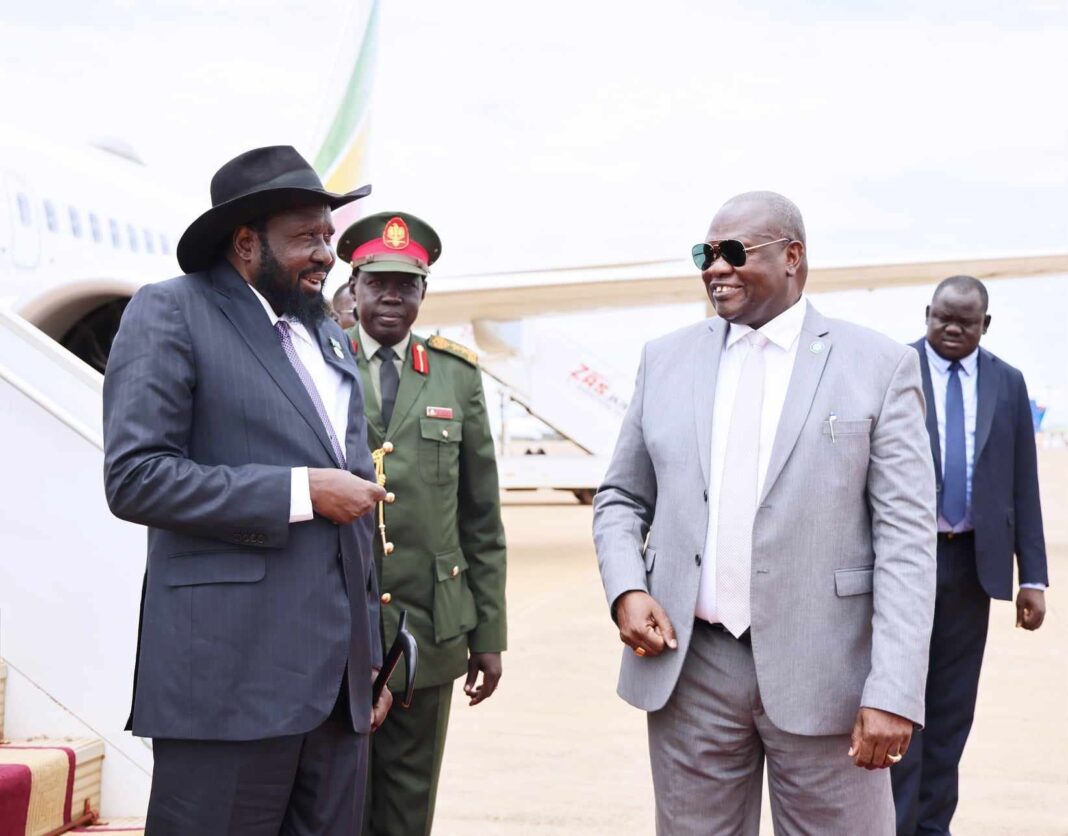South Sudan’s President Salva Kiir Mayardit and his First Vice-President Riek Machar at Juba International Airport |Courtesy: OPSS|
By Vincent Samuel,
The United States Deputy Assistant Secretary of State Enrique Roig and USAID Deputy Assistant Administrator Mark Billera as well as the National Security Director Colin Thomas-Jensen, visited South Sudan’s capital, Juba to pressure the transitional government of national unity to urgently take action to create the conditions necessary for genuine and peaceful elections at the end of transitional period in December this year.
The visit came as the parties that signed the 2018 revitalized peace agreement lock horns over the pre-election activities supposed to be implemented to ensure inclusive, credible, free, and fair elections.
Colin Thomas-Jensen in a press statement called on South Sudan’s political leaders to address the lack of political and civic space, politically neutral and unified forces, and full funding and operationalization of necessary electoral institutions.
“I came to Juba May 21-24 with my colleagues Deputy Assistant Secretary of State Enrique Roig and USAID Acting Deputy Assistant Administrator Mark Billera,” Colin said.
“The purpose of our trip is to call for urgent action to create the conditions necessary for genuine and peaceful elections. These include addressing the lack of political and civic space, politically neutral and unified forces, and full funding and operationalization of necessary electoral institutions,” he explained.
Colin urged the launch of direct dialogue among transitional government leaders, including President Kiir, First Vice President Machar, and all members of the presidency, with the objective of making genuine and peaceful elections possible.
“Such dialogue would send an important signal to the South Sudanese people and to donor countries that South Sudan’s leaders are committed to peace and the rejection of violence as a tool for political competition,” he said.
He also called for full and immediate implementation of exemptions for the United Nations Mission in South Sudan (UNMISS), UN agencies, humanitarian organizations, and diplomatic missions.
“Those who seek to impose taxes, fees, and other inappropriate costs on humanitarian assistance are diverting aid away from South Sudanese people in need,” he stressed.
U.S. engagement in South Sudan began decades ago. Its endurance is based on values including peace, human rights, democracy, and people’s right to choose leaders who respond to the needs of the South Sudanese people.
Leaders of second biggest political party in South Sudan, SPLM-IO (Sudan People’s Liberation Movement In-Opposition), last year sounded an alarm that their leader, Riek Machar Teny, who is also the country’s first vice president, was restricted from leaving the national capital since he returned to the country in October 2018 after the signing of the revitalized peace agreement.
“Since his return, Riek Machar has been denied chances to seek medical treatment outside the country, Oyet Nathaniel, the deputy chairperson of SPLM-IO said.
He said Riek Machar has been confined in Juba and not been given access to his constituencies and strongholds to meet his supporters and sympathizers ahead of the anticipated general elections.
Golden Times | South Sudan




